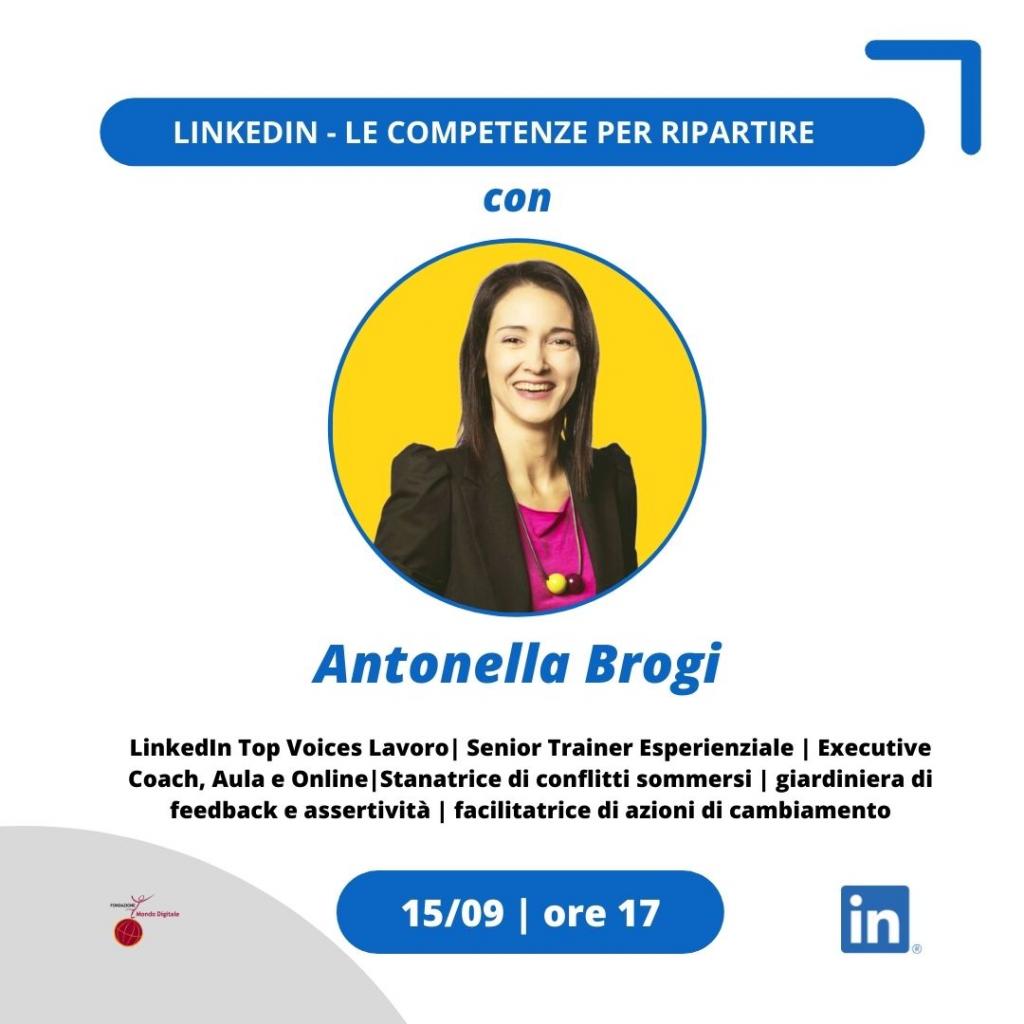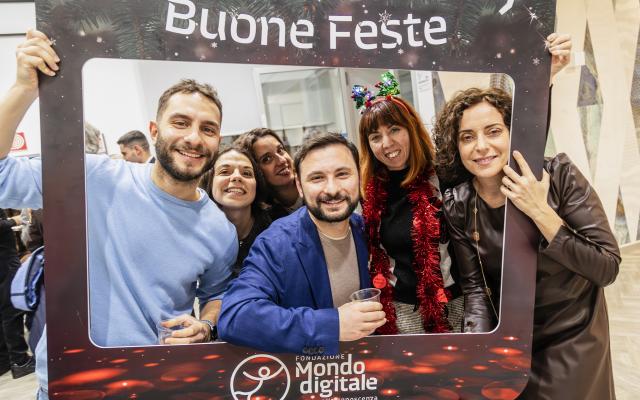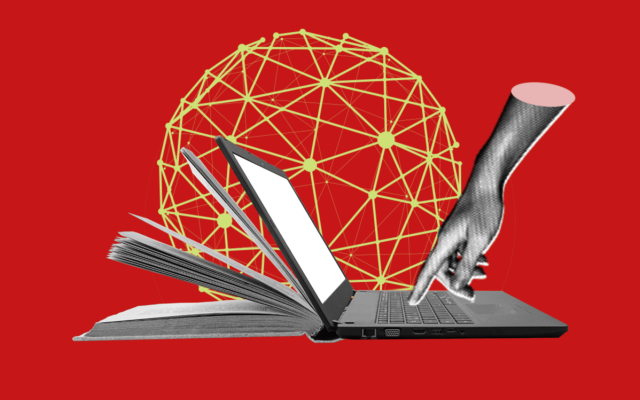Recovery Skills with LinkedIn: A meeting with Antonella Brogi
LinkedIn Top Voices Labour, Senior Experiential Trainer | Executive Coach PCC ICF | In presence and on-line | Identifier of Hidden Conflicts | Gardener of Feedback and Assertiveness | Facilitator of Action for Change … this is the professional description shared by Antonella Brogi on her LinkedIn profile. Antonella will be the next protagonist of the next “Recovery Skills” on Thursday, September 15 at 5:00 pm.
Who is Antonella outside of her profession? We asked "La Brogi," as she is referred to, how she became who she now is. What motivates and inspires her every day?
“Communications has always been the fil rouge of my career. After graduating in Communications, I started collaborating with an association that safeguards consumers, mainly children. I worked in close contact with the institutions, such as the parliamentary commission for infancy and adolescence. Then, I began working as an account manager for a company branding agency. This allowed me to understand how important personal branding was for business. It was an experience that allowed me to acquire a whole new set of skills. It wasn’t the job of my life, but it was a fundamental step in the direction of my current job.”
How did you understand that account manager was not the right job for you?
I had never been trained as a salesperson. At 33, an event suddenly opened my eyes to what I was doing and how I was spending my time. I participated in the first edition of the International Academy on Leadership and Teamwork, an experiential training course that led me to grasp the possibilities provided by training, increasing both awareness and change.
What is meant by experiential training?
Experiential training is a teaching and learning methodology. Traditionally, even at school, the methodology is that teachers transfer notions in a fontal lesson and the students only experiment with what they have learnt after that. Experiential learning works the other way around. First the experience, then the analysis. Initial activities include team building, team working and outdoor experiences. Then participants analyse what worked and what didn’t, what could have been done differently, and identify new behavioural strategies for the following activity and professional context. It’s a process of de- and re-construction in which, rather than being the fulcrum, experience is the means for observing and understanding. De-briefing is central and the way it is conducted leads to understanding and change.”
Once you discovered this passion, how did you cultivate it?
“First, I resigned from the agency. Then, a series of opportunities and circumstances allowed me to save what I needed to seriously invest in training. I got a VAT number in 2012 and those who would then become my mentors, identified the skills and attitudes to match my profession and literally took me on.”
How important are leadership and mentorship in our professional careers?
At first, I had four mentors: two men and two women, each with their specific style of leadership. They showed me their work, shared their materials, brought me with them to see clients, and prepared me to face the market, before leaving me to my own devices. After four years, I understood that it was time to step out on my own, with immense gratitude. Whenever possible, we still collaborate. I have appreciated much about them, especially their ability to always stay a step behind, never wanting to be protagonists, but rather waiting for me to get it and be ready to step forward on my own.”
Did you ever have any doubts?
“No, since the day I left my job as an account manager, I brought everything forward with me. Looking back, I can say that every single activity was useful to the work I do today. And I’m very grateful about this.”
One of the most important intuitions of my career?
“I understood the usefulness of content marketing in personal branding processes. Together with the professional use of LinkedIn, they are fundamental for my profession. At the beginning of my career, I got some clients from Twitter, or thanks to my self-built Internet site in 2012, before any of my colleagues had one. Then, I landed on LinkedIn, I discovered LinkedIn Top Voices, and understood the impact that this could have on my work. In September 2020, I dediced to work to become a Top Voice myself. This gave me both credibility and visibility (and a new opportunity to reach out to prospective clients). With the help of Valerio Maria Murgolo, I launched into a profound reflection on what added value I wished to transmit to my readers. Now, everything I write, I do with those thoughts in mind. Why do I write? What do I wish to communicate and how? I believe that this is the right key to speak with and for people rather than at them. It allows you to change outlook and become a useful tool, rather than a guru. Describing oneself and what one does coherently and authentically. This attracts others, even if you are separated by a screen and many kilometres. This is also how I met my business partner, Enzo Passaro, with whom I created the Speaker Social Club”.
What does it mean to requalify or access the working world for the first time?
“The first thing is to have clear ideas, on one’s skills, soft and transferrable. I, for example, learned some external/internal communications techniques on client management and work organization, when I worked as a waitress. Then, one must be clear about one’s objective and how to reach it through a specific action plan. The plan must be coherent with one’s personality.”
A saying you think about when you are facing issues?
“My mantra, the words I always repeat when I think about what separates me from my goal is “I can do it and I will.”




